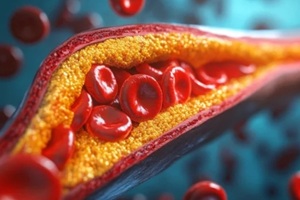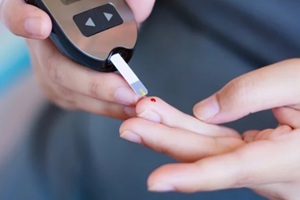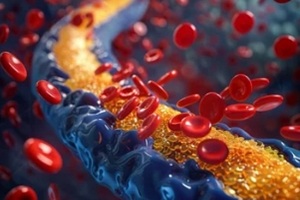 Cholesterol is a waxy form of body fat that travels through your bloodstream. While your body needs some cholesterol, having high cholesterol raises your risk for cardiac disease and stroke.
Cholesterol is a waxy form of body fat that travels through your bloodstream. While your body needs some cholesterol, having high cholesterol raises your risk for cardiac disease and stroke.
You may wonder why your cholesterol levels fluctuate. The truth is that many factors can cause your cholesterol screening numbers to rise and fall over time.
What Causes Cholesterol Level Changes
Your cholesterol levels may increase or decrease due to lifestyle factors such as diet, exercise, weight, and smoking. Medical conditions, medications, genetics, and hormonal changes also impact cholesterol. Even the changing seasons may affect your numbers.
Diet and Eating Habits
Consuming excessive saturated fat and trans fat has a cholesterol-elevating effect. Saturated fats hide in high-fat dairy, fatty meats, butter, cheese, ice cream, palm oil, and coconut oil. Trans fats lurk in store-bought goods such as baked desserts, microwave popcorn, coffee creamers, and anything with “partially hydrogenated oil” in the ingredients.
Replacing these fats with unsaturated fats from plant sources can lower LDL “bad” cholesterol. Heart-healthy unsaturated fats are abundant in nuts, seeds, avocados, olive oil, fatty fish, and soy. A diet centered around veggies, fruits, whole grains, beans, lentils, and lean proteins also keeps cholesterol in check by improving your lipid profile.
Physical Activity Levels
Being consistently physically active is a sure way to boost HDL “good” cholesterol. Aim for 150 minutes per week of moderate exercise such as quick walking, water aerobics, cycling, dancing, gardening, or anything that quickens your pulse, suggests the American Heart Association (AHA).
Even if you can’t get all 150 minutes in every week, short spurts of movement may help somewhat. So simply staying active day-to-day rather than remaining sedentary gives your levels a little nudge in the right direction.
Weight Gain or Loss
Carrying excess weight corresponds directly with poorer cholesterol levels over time. Losing even a moderate 5% to 10% of your current weight through smart lifestyle strategies significantly lowers LDL and total cholesterol while raising HDL cholesterol.
On the flip side, any reversal involving rapid weight gain generally has the opposite effect. For sustainable, safe weight management guidance, meet with a registered dietitian nutritionist or talk with your primary care physician.
Smoking Cigarettes
Smoking cigarettes adversely affects cholesterol numbers. According to the Centers for Disease Control and Prevention (CDC), smoking boosts LDL and triglycerides (blood fats) while decreasing HDL. Over time, smoking increases significantly the odds of developing heart disease. However, quitting smoking can quickly lower cardiovascular risks.
Medical Conditions
 Certain chronic health conditions such as diabetes, chronic kidney disease, and hypothyroidism increase LDL and total cholesterol levels in the body. These diseases disrupt normal cholesterol metabolism and clearance. Following the prescribed treatment plans helps manage the accompanying high cholesterol.
Certain chronic health conditions such as diabetes, chronic kidney disease, and hypothyroidism increase LDL and total cholesterol levels in the body. These diseases disrupt normal cholesterol metabolism and clearance. Following the prescribed treatment plans helps manage the accompanying high cholesterol.
Medications
Various prescription medications contribute to cholesterol fluctuations, too. Medications notorious for adversely raising cholesterol as a side effect include:
- Corticosteroids to reduce inflammation
- Immunosuppressant drugs for autoimmune disorders
- Birth control pills and hormone replacement therapy
- Beta-blockers and diuretics for controlling blood pressure
- Anticonvulsants for seizures
- Antivirals for HIV treatment
- Anti-psychotic psychiatric medications
If your medication elevates cholesterol, talk with your physician about modifying the dosage or switching prescriptions. Lifestyle therapy through diet and exercise may also help lessen these effects in some cases.
Genetics
Familial hypercholesterolemia is a genetic condition causing very high cholesterol from birth onward. Those born with one affected parent often have LDL levels two to three times the normal ranges without treatment. Managing the condition requires cholesterol-lowering medications plus lifestyle therapy starting in childhood.
Hormonal Fluctuations
Hormone levels tied to life events such as pregnancy, menopause, or monthly menstrual cycles impact cholesterol. Changes in reproductive hormones, including estrogen and progesterone, seem to affect cholesterol production and clearance rates throughout the body temporarily.
During pregnancy, blood cholesterol increases by 30% to 40% on average to nourish fetal development. After giving birth, numbers usually return to normal within a few months. Premenopausal women also experience predictable cholesterol fluctuations each menstrual cycle as estrogen rises and falls.
In a National Institutes of Health (NIH) study tracking women’s monthly cycle changes, total and LDL cholesterol declined as estrogen peaked just before ovulation. After ovulation, when estrogen dropped quickly, total cholesterol, LDL, and triglycerides plummeted to the lowest levels just before the beginning of menstruation.
The Cycle of Seasons
As the seasons change, so do cholesterol levels for some people. Research from a large study in Brazil shows significant seasonal variations in cholesterol levels.
The study found that LDL (“bad”) cholesterol increases during winter months, with an average increase of 7 mg/dL compared to summer levels. This leads to an 8% overall increase in the prevalence of high cholesterol during winter.
Interestingly, HDL (“good”) cholesterol and triglycerides showed higher levels during summer months, being 9% and 5% more prevalent respectively. These variations may be more pronounced in regions with more extreme seasonal temperature changes than the tropical climate where this study was conducted.
Why does this seasonal variation happen? Scientists propose contributory factors:
 Changed activity habits: less outdoor exercise in cold weather
Changed activity habits: less outdoor exercise in cold weather- Heavier comfort foods in winter diets
- Vitamin D production dropping without as much sun exposure
- Climate-related changes that can affect lipid metabolism
Schedule Your Cholesterol Screening in Durham, NC
If you have concerns about your cholesterol or simply want to maximize your heart health, Imperial Center Family Medicine can help. Our team of specialists provides ongoing guidance surrounding therapeutic nutrition, activity, sleep, and stress management to empower you to take control of your cholesterol.
Contact us today at 919-873-4437 or online to start working on a plan to get your cholesterol under control.
